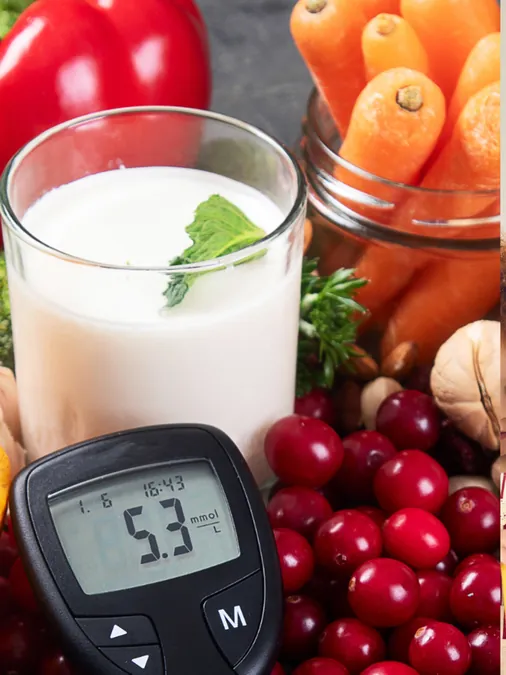
10 Diet Practices to Effectively Control Your Cholesterol Levels!
2024-12-22
Author: Li
10 Diet Practices to Effectively Control Your Cholesterol Levels!
Are you concerned about your cholesterol? Maintaining healthy cholesterol levels is crucial for reducing the risk of heart disease and strokes, and a balanced diet plays a significant role in achieving optimal cardiovascular health. Here are ten practical dietary changes that can help control your cholesterol levels naturally:
1. Embrace Healthy Vegetable Oils
Swap out unhealthy fats for heart-friendly vegetable oils like canola, sunflower, or safflower. These oils are rich in unsaturated fats that can effectively lower your LDL (bad) cholesterol levels, promoting better heart health.
2. Load Up on Seasonal Fruits and Vegetables
Fresh, seasonal produce is not only delicious but also packed with antioxidants and fiber. These nutrients work together to lower cholesterol levels and support overall health. Integrating a colorful variety of fruits and vegetables into your meals can make a significant difference.
3. Quit Alcohol and Smoking
Did you know that smoking and excessive alcohol consumption can wreak havoc on your heart? Health organizations, including the WHO, consistently warn against these habits for good reason. Eliminating them can dramatically improve your cardiovascular health.
4. Spice Up Your Meals
Incorporating certain spices into your cooking can also help lower cholesterol. Turmeric, garlic, and ginger are all exceptional choices due to their heart-protective compounds. They not only flavor your dishes but also serve as potent health boosters!
5. Opt for Lean Proteins
Trade in red meat for healthier alternatives, such as skinless poultry, fish, tofu, and legumes. Red meat is often high in saturated fats, which can lead to an increase in cholesterol levels and a higher risk of heart disease.
6. Include More Soy
Research suggests that consuming about 25 grams of soy protein daily can reduce LDL cholesterol by 5% to 6%. Foods like tofu, tempeh, and soy milk can easily fit into your diet while promoting heart health.
7. Add Plant Sterols and Stanols
Fortified foods that contain plant sterols and stanols, like some margarines and juices, can help block cholesterol absorption in your intestines. Incorporating these into your diet can lead to lower serum cholesterol levels.
8. Choose Whole Grains
Whole grains, such as brown rice, quinoa, and whole-grain bread, are packed with essential nutrients and fiber. These foods not only promote better digestive health but also help to lower cholesterol levels.
9. Stay Hydrated with Healthy Beverages
In addition to your solid food choices, consider your beverage intake. Swap sugary drinks for water or herbal teas, which can help maintain heart health by keeping you hydrated without added sugars.
10. Monitor Portion Sizes
While what you eat is crucial for cholesterol management, portion control is equally important. Overeating—even healthy foods—can lead to weight gain, which negatively impacts cholesterol levels. Pay attention to your portion sizes to help keep your heart healthy.
Adopting these dietary practices will not only aid in controlling your cholesterol but also enhance your overall wellbeing. Remember, small changes can lead to significant results! Start today, and give your heart the care it deserves!



 Brasil (PT)
Brasil (PT)
 Canada (EN)
Canada (EN)
 Chile (ES)
Chile (ES)
 España (ES)
España (ES)
 France (FR)
France (FR)
 Hong Kong (EN)
Hong Kong (EN)
 Italia (IT)
Italia (IT)
 日本 (JA)
日本 (JA)
 Magyarország (HU)
Magyarország (HU)
 Norge (NO)
Norge (NO)
 Polska (PL)
Polska (PL)
 Schweiz (DE)
Schweiz (DE)
 Singapore (EN)
Singapore (EN)
 Sverige (SV)
Sverige (SV)
 Suomi (FI)
Suomi (FI)
 Türkiye (TR)
Türkiye (TR)